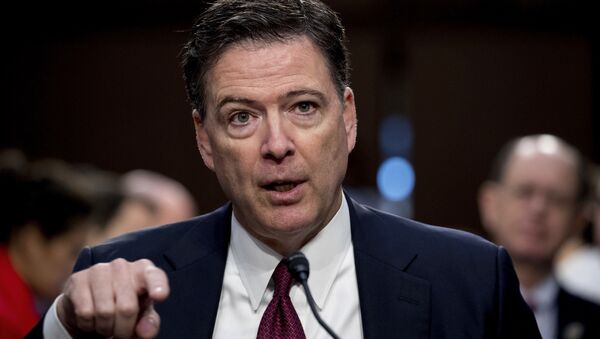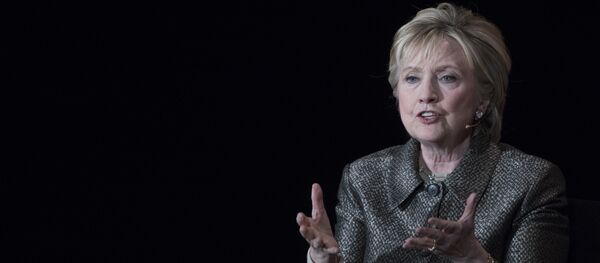Senators Chuck Grassley and Lindsey Graham, chair and member of the Judiciary Committee respectively, claim then-FBI chief James Comey drafted a statement about the bureau's investigation into Hillary Clinton's use of a private email system, stating Clinton would not face charges, long before the probe was completed, suggesting the investigation's conclusion was predetermined — and even perhaps that the scrutiny was illusory.
The committee, which is investigating President Donald Trump's firing of Comey in May, charges that in April or early May of 2016, Comey had already decided to issue a statement exonerating Secretary Clinton, long before his agents concluded their investigation.
Moreover, Comey is accused of circulating an early draft statement to select members of senior FBI leadership.
It was not until July 2016, that Comey announced at a press conference he would not be recommending the Department of Justice pursue charges against Clinton.
Appears #Comey Drafted the Conclusion in #Clinton Probe Prior to Interviewing 16 Key Witnesses! So much corruption. https://t.co/Gjdmr38YoQ pic.twitter.com/XsFQOT1RTO
— Nick Short 🇺🇸 (@PoliticalShort) August 31, 2017
Grassley and Graham cite portions of conversations the Office of the Special Counsel had with witnesses as part of its investigation into Comey's actions as FBI Director — for instance, the office asked a witness (believed to be Jim Rybicki, FBI Chief of Staff and Senior Counselor to the Director) about the origins of Comey's July 2016 statement on Clinton.
Wow, looks like James Comey exonerated Hillary Clinton long before the investigation was over…and so much more. A rigged system!
— Donald J. Trump (@realDonaldTrump) September 1, 2017
The witness responded, "sometime in the spring… the Director emailed a couple of folks…. he sent a draft around of, you know, what it might look like."
"The FBI should be held to a higher standard than that, especially in a matter of such great public interest and controversy. The outcome of an investigation should not be prejudged while FBI agents are still hard at work trying to gather the facts," the pair wrote to the bureau.
Another witness (believed to be Trisha Anderson, the Principal Deputy General Counsel of National Security and Cyberlaw) told the Office of the Special Counsel they first learned in May 2016 Comey planned to make a public statement about the outcome of the Clinton probe, and it was at that time the Director wrote a draft statement.
At that point, the FBI had not yet interviewed 17 people connected to the case, including Clinton herself. The disgruntled senators accuse Comey of adopting a "conclusion first, fact-gathering second" approach, which is "no way to run an investigation."
Comey's July 2016 press conference exonerating Clinton elicited widespread condemnation — critics suggested the move violated department traditions and norms — and he again found himself in the crosshairs in October that year, when shortly before the presidential election, he wrote to Congress saying agents had found new evidence in the apparently completed email case.
In May, Deputy Attorney General Rod Rosenstein cited these unusual disclosures in a memo to Trump about Comey, and when Trump fired Comey on May 9, he likewise cited the Rosenstein memo.
The FBI concluded Clinton was "extremely careless" in handling classified information via a private email account, but did not believe her transgressions warranted criminal charges.
Comey called the investigation a "painstaking undertaking" which required thousands of hours of effort — but while the FBI absolved Clinton of any criminal wrongdoing, the contents of the missives still gave her opponents ample fodder.
Some noted that under the Espionage Act, it is a felony to mishandle classified information via "gross negligence" — which would surely fall under "extreme carelessness." Moreover, the emails themselves make clear Clinton was aware of State Department rules regarding the handling of classified information, and actively intended to violate them.





